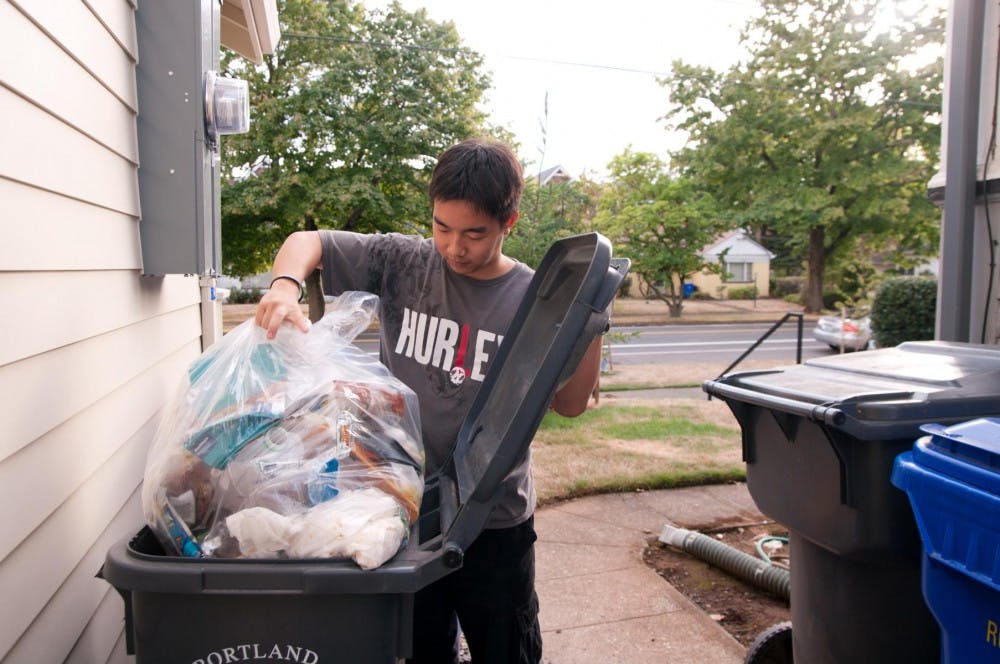Compost will be picked up once a week and garbage will be picked up only every other week
(-- The Beacon)
By Corey Fawcett Staff Writer fawcett13@up.edu
Students who live off campus will soon get some real-life lessons in sustainability whether they want to or not.
Starting Oct. 31, all of Portland's single-family homes and complexes with four units or fewer will be expected to start curbside composting. This includes houses in the area around UP.
Compost will be picked up by the city once a week, and garbage pickup will be reduced from once a week to once every other week, according to Bruce Walker, waste and recycling program manager for the City of Portland.
"The program will significantly reduce landfill materials and decrease methane gas emissions," Walker said.
Each year, Portland residents send 30,000 tons of food scraps to landfills. The new program is not only environmentally friendly, it is also cost-effective since it's cheaper to compost than to dump garbage. The composted materials can also be resold as fertilizer, according to Walker.
"Portland should be large enough to make this program economically viable," environmental science professor Fr. Ron Wasowski, C.S.C., said.
Two thousand residents from four Portland neighborhoods have been taking part in a curbside composting pilot program since last year.
According to Walker, roughly two-thirds of the residents in the pilot program compost daily.
A letter from Mayor Sam Adams addressed to all Portland residents also noted that 87 percent of the residents reported being very or somewhat satisfied with the program, and garbage generated by the pilot program participants has decreased by a third.
Portland is following in the footsteps of Seattle and San Francisco, which implemented similar compost programs within the past few years.
"The program has been in the works for many years," Walker said. "Seven hundred Portland businesses in the past composted, but until now we didn't have compost capacity to get all households to compost."
Compostable materials will include things people previously haven't been able to compost because of odor and bacteria issues, such as meat and dairy products.
Off-campus senior Jessie Hethcoat is excited about the convenience the new program will bring to composting.
"If you can put your compost outside your house and it will be transported for you, that cuts out a whole bunch of work," Hethcoat said. "We can actually reinstate the compost bin in my house now."
However, some students, including junior Patrick Myers, are concerned about the drawbacks of getting their garbage picked up only every other week.
"I eat all my food," Myers said. "I have no food scraps. I'm just going to have a giant pile of trash on the side of my house. I think Sam Adams is overshooting his goal in being environmentally friendly. He's ignoring the important issues such as streets that aren't paved."
Before the program is implemented Oct. 31, residents will get a kitchen pail to put their compost materials in.
Because garbage will be collected only every other week, additional compost collection won't raise prices for Portland residents, according to Adams' letter. An extra garbage can costs $6.30.








